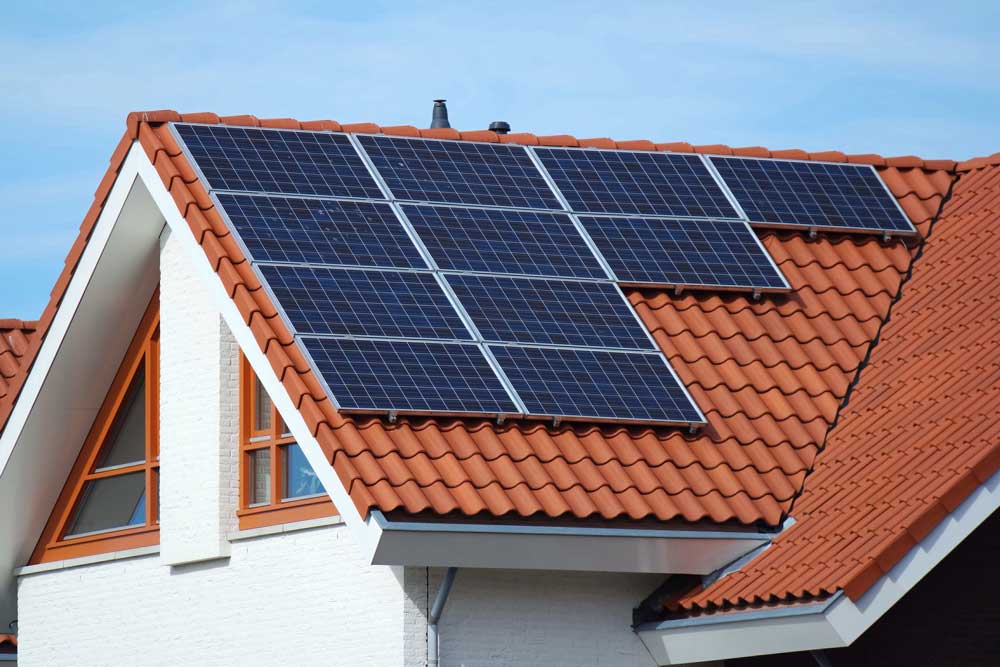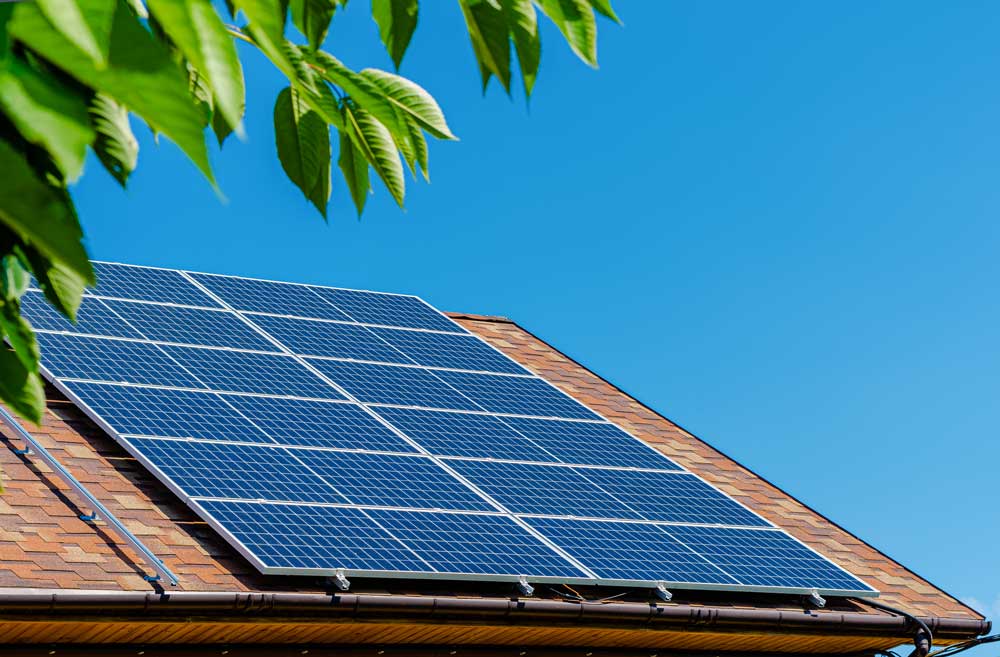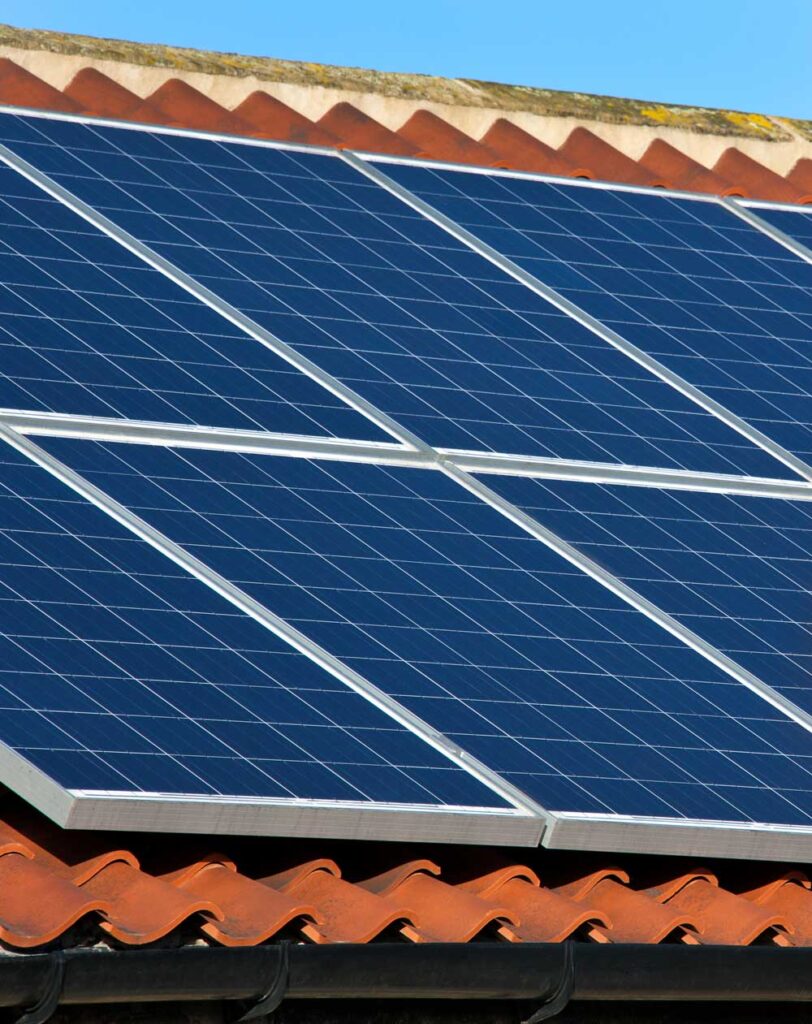How to Tell if Your House Can Have Solar Panels
Solar panels are a great way to reduce your carbon footprint and save money on your energy bill. However, not all homes are suitable for solar panel installation. In this article, we'll discuss some of the factors you need to consider when determining if your home is suitable for solar panels.
1. The first thing you need to consider is the orientation of your home. Solar panels need to be installed in a south-facing direction in order to maximize their potential. If your home is not oriented in a south-facing direction, you may still be able to install solar panels, but they will not be as effective.
2. Another factor to consider is the amount of sunlight your home receives. Solar panels need direct sunlight in order to function properly. If your home is in a shady location, you may not get enough sunlight to make solar panels worth your investment.
3. The third factor to consider is the pitch of your roof. Solar panels need to be installed on a roof with a pitch of at least 30 degrees in order to be effective. If your roof is not pitched at least 30 degrees, you may still be able to install solar panels, but they will not be as effective.
4. The fourth factor to consider is the size of your roof. Solar panels take up a lot of space, so you need to have a large enough roof to accommodate them. If your roof is too small, you may not be able to install solar panels.
5. The fifth factor to consider is the type of roof you have. Solar panels can be installed on most types of roofs, but some are better suited than others. Metal roofs and tile roofs are ideal for solar panel installation, while shingle roofs are not as ideal.
6. The sixth and final factor to consider is the age of your roof. Solar panels can be installed on most types of roofs, but older roofs may not be able to support the weight of the panels. If you have an older roof, you may want to consult with a professional to see if solar panel installation is right for you.
If you consider all of these factors and find that your home is suitable for solar panel installation, congratulations! You are one step closer to reducing your carbon footprint and saving money on your energy bill.
What are solar panels and how do they work?
Solar panels are devices that convert sunlight into electricity. They are made up of a series of photovoltaic (PV) cells, which are made of semiconductor materials like silicon. When sunlight hits a PV cell, it causes the electrons in the silicon to become excited and move around. This movement of electrons creates an electric current, which can be used to power electrical devices.

The benefits of solar panels for homes.
Solar panels offer a number of benefits for homeowners. First, they can help you save money on your energy bill. Solar panels can offset a portion of your home's energy usage, which can lead to lower energy bills. Additionally, solar panels can increase the value of your home. Homes with solar panels have been shown to sell for a premium over homes without solar panels. Finally, solar panels can help reduce your carbon footprint. Solar panels are a clean source of energy, and they do not emit greenhouse gases or other pollutants.
How to tell if your house is suitable for solar panels.
To determine if your home is suitable for solar panels, you need to consider a few factors, including the orientation of your home, the amount of sunlight your home receives, the pitch of your roof, the size of your roof, the type of roof you have, and the age of your roof.
The different types of solar panels available for homes.
There are a few different types of solar panels available for homes. The most common type is the PV solar panel. PV solar panels are made of semiconductor materials like silicon, and they convert sunlight into electricity. Another type of solar panel is the solar thermal panel. Solar thermal panels use sunlight to heat water, which can then be used for domestic hot water or space heating.

The cost of solar panels for homes.
The cost of solar panels varies depending on the type of panel you choose, the size of your installation, and the location of your home. PV solar panels typically cost between $3 and $5 per watt, while solar thermal panels typically cost between $2 and $4 per watt.
The installation process of solar panels for homes.
The installation process of solar panels varies depending on the type of panel you choose and the size of your installation. PV solar panels typically need to be installed by a professional, while solar thermal panels can be installed by a homeowner.
The maintenance required for solar panels for homes.
Solar panels require very little maintenance. PV solar panels typically have a lifespan of 25 years or more, while solar thermal panels typically have a lifespan of 20 years or more.
The pros and cons of solar panels for homes.
Solar panels offer a number of benefits for homeowners, including lower energy bills, increased home value, and reduced carbon footprint. However, solar panels also have a few drawbacks. Solar panels can be expensive to install, and they require a sunny location and a large roof.

FAQs about solar panels for homes.
1. What are solar panels and how do they work?
Solar panels are devices that convert sunlight into electricity. They are made up of a series of photovoltaic (PV) cells, which are made of semiconductor materials like silicon. When sunlight hits a PV cell, it causes the electrons in the silicon to become excited and move around. This movement of electrons creates an electric current, which can be used to power electrical devices.
2. What are the benefits of solar panels for homes?
Solar panels offer a number of benefits for homeowners. First, they can help you save money on your energy bill. Solar panels can offset a portion of your home's energy usage, which can lead to lower energy bills. Additionally, solar panels can increase the value of your home. Homes with solar panels have been shown to sell for a premium over homes without solar panels. Finally, solar panels can help reduce your carbon footprint. Solar panels are a clean source of energy, and they do not emit greenhouse gases or other pollutants.
3. How can I tell if my house is suitable for solar panels?
To determine if your home is suitable for solar panels, you need to consider a few factors, including the orientation of your home, the amount of sunlight your home receives, the pitch of your roof, the size of your roof, the type of roof you have, and the age of your roof.
4. What are the different types of solar panels available for homes?
There are a few different types of solar panels available for homes. The most common type is the PV solar panel. PV solar panels are made of semiconductor materials like silicon, and they convert sunlight into electricity. Another type of solar panel is the solar thermal panel. Solar thermal panels use sunlight to heat water, which can then be used for domestic hot water or space heating.
5. How much do solar panels for homes cost?
The cost of solar panels varies depending on the type of panel you choose, the size of your installation, and the location of your home. PV solar panels typically cost between $3 and $5 per watt, while solar thermal panels typically cost between $2 and $4 per watt.
6. How do I install solar panels for homes?
The installation process of solar panels varies depending on the type of panel you choose and the size of your installation. PV solar panels typically need to be installed by a professional, while solar thermal panels can be installed by a homeowner.
7. How much maintenance do solar panels for homes require?
Solar panels require very little maintenance. PV solar panels typically have a lifespan of 25 years or more, while solar thermal panels typically have a lifespan of 20 years or more.
8. What are the pros and cons of solar panels for homes?
Solar panels offer a number of benefits for homeowners, including lower energy bills, increased home value, and reduced carbon footprint. However, solar panels also have a few drawbacks. Solar panels can be expensive to install, and they require a sunny location and a large roof.

